Lea Wait's Blog, page 81
September 12, 2022
Random Thoughts From Your Friendly Neighborhood Crime Writer
— I did a total remodel job this last month and noticed the similarities between that and writing a novel. From the ashes of demolition I needed to come up with a design and interesting concept, and the closer to completion we got the more detailed and precise the work became.
—Looking forward to the launch of Dick Cass’s new novel, THE LAST ALTRUIST, on 9/21 at Longfellow Books. Hope to see some writer friends there.
—A talented young writer, also a friend of mine, asked me for help writing a query letter. Boy, those are hard. I’m glad I don’t have to write one anymore—or for the foreseeable future. It reminded me how specific, concise and economical a query letter needs to be. I felt bad sending back to him time and time again for corrections, but it’s necessary to get an agent.
—I have a trilogy about a female serial killer. The editing of the first book was epic between me and my editor. Well, it’s now in the books. Only it doesn’t come out until next summer. Both my publisher and agent said there is a big paper shortage. Isn’t that the shits.
—I’m editing an old book for the umpteenth time, still believing it has merit. Wow, what clarity you get when you pick it up a year later. Funny thing is that I still love it. Except it took a year for me to realize that the first chapter was mostly info dumping. Why am I still doing that at this stage in my career? Sometimes I feel I’m moving backward and not forward in my craft.
—The Red Sox are done. The Queen is dead. Johnny Rotten of the Sex Pistols said he actually admired the Queen. Never count the Patriots out with Bill Belichick as head coach, but I think you can stick a fork in the Pats this year. Bring on the Bruins.
—For a very long time we Portland crime writers were living in a low crime city. In fact, we had to invent crime in our fiction. 42 shootings this year, which is double the rate of 2021. Stabbings up 31%. A SWAT team took command of my neighborhood to catch a murderer hiding out in our quiet neighborhood. Guess our fair old town ain’t so safe these days.
—A police officer told me the department is down 30 officers. Obviously, no one wants to be a police officer these days. And who can blame them? The job is becoming more dangerous by the day. And crazy. Last week he told me he saw a topless woman shouting on Cumberland Avenue while holding a dead seagull. What an image.
—A good deal of the plot in my third book, part of a crime trilogy, takes place in LA. I’ve been to LA. Didn’t love it. Thanks goodness for Google Maps.
—The last edit of my first book in the trilogy was a beautiful nightmare. Although hellish and excruciating, it was one of the best edits I’ve ever had.
—Live lobster yesterday was $4.99 a pound. I love lobster. Buy it. Make lobster rolls and help the lobstermen and lobsterwomen in this state. I always say that my father was a stern man, even though he never fished professionally.
—My father’s house near Boston is up for sale. He passed away last November and his estate just came out of probate. Are you kidding me? In ten months the interest rates skyrocketed and now made it a harder sell. Thanks, Massachusetts.
—I love Oktoberfest beers. They might be my favorite. This month I’m going to Schilling Brewery in the foothills of the White Mountains and sample their version, among many other. They specialize in German and Czech beers and use the beloved LUKR tap. In case you’re interested, Sacred Profane just opened a Czech style brewery in Biddeford and is using the LUKR tap. I tried their dark lager at Novare Res (they also use the LUKR tap) and can say it was delicious. Also, Fore River Brewery’s Oktoberfest is now out and it’s delicious. Head over to their tasting room in South Portland and try it before it goes away for the year.
—That’s all I got, folks
September 9, 2022
Weekend Update: September 10-11, 2022
 Next week at Maine Crime Writers there will be posts by Joe Souza (Monday), Susan Vaughan (Tuesday), Vaughn Hardacker (Thursday), and Kaitlyn Dunnett/Kathy Lynn Emerson (Friday).
Next week at Maine Crime Writers there will be posts by Joe Souza (Monday), Susan Vaughan (Tuesday), Vaughn Hardacker (Thursday), and Kaitlyn Dunnett/Kathy Lynn Emerson (Friday).
In the news department, here’s what’s happening with some of us who blog regularly at Maine Crime Writers:
You will find some of us here:
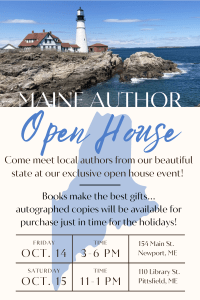
An invitation to readers of this blog: Do you have news relating to Maine, Crime, or Writing? We’d love to hear from you. Just comment below to share.
And a reminder: If your library, school, or organization is looking for a speaker, we are often available to talk about the writing process, research, where we get our ideas, and other mysteries of the business, along with the very popular “Making a Mystery” with audience participation, and “Casting Call: How We Staff Our Mysteries.” We also do programs on Zoom. Contact Kate Flora
CONFUSED BUT NOT CONCERNED
by Jule Selbo
The title of the new book in my Dee Rommel Mystery Series is 9 DAYS. (It follows 10 DAYS, which came out last September.) The publishers set September 28, 2022 as the release date of 9 DAYS and that’s the date I had in my head. I was trying to work on social media “stuff” for the release date and my nerves hadn’t started to ping yet.
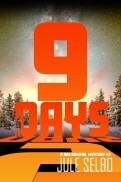
On the morning of August 29, I get an email from the publisher that the paperback was now available on Amazon; that the company had decided on a “soft launch.” Paperback only – not the Kindle version and not the hard cover.
I assume many of the writers/readers of the MCW Blog know exactly what a ‘soft launch’ is. I didn’t.
I had to look it up and Google provided a clue: SOFT LAUNCH is when the book is on sale pre-official release. Availability is only for select people, such as members of the media, bloggers or newsletter subscribers who, hopefully will post preliminary reviews.
Luckily, my publisher assigns a communication person in the company to each author – and ‘mine’ is great about getting back to the un-savvy-about-publishing’s-ins-and-outs writer.

My query to ‘my person’: “9 DAYS is out? What happened to the September 28th thing? I am confused. Not concerned – just confused.”
My contact explained: “Soft launch makes it possible to get you paperback copies for book readings, etc. and for the marketing department to be able to send it out for reviews, for you to tell a small sector of people who then might post a review, and for word of mouth to spread. It was an in-house decision, no one thought to send you a message. Don’t worry, all’s fine.”
Not sure how I’ve gotten this impression – but has Amazon jumped in on this idea and made the ‘soft launch’ popular and easy with some of the small publishers. Do they see it as a way to make sure readers go to them first?
Anyone know about that?
My day was pretty much shot as far as concentration on my work on 8 DAYS, so I kept looking for more information on ‘soft launch’. One site said it was an opportunity to invite friends/fans to be part of the app development process. During the soft launch, you and the publisher can also collect feedback on social media plans.
A quote from another site: (Soft launch) is the secret that most successful authors don’t talk about. Ever wonder why when a famous author releases a book, there are already 200 glowing reviews on Amazon? It’s because the book was already available for sometime but kept on the down-low. A release date doesn’t really mean a book was actually published that day. A release date is more like a push date, where the author and or publishing house are starting their marketing bonanza.”

Another site noted that soft launches are important because having an actual book out can make it easier for the writer/publisher to secure interviews and/or podcast appearances. One internet blog stated: “to have a successful blog tour, or ad blitz you’re going to need to schedule things so when your major launch happens, things will smoothly fall into place.”
A new friend that I met at Killer Nashville wrote back to me about his experience: “Regarding your soft launch, my publisher is doing the same thing. My sequel to Contempt probably could have been available for sale in September, but the release date is November 14th because they’re sending out advance copies and they try to give those readers 60 – 90 days to read it and write a review so that when the book is released, they’ll have some reviews they can attach. Sort of frustrating, although I’ll certainly defer to them. At least usually.”
Who else has experience with soft launches? Would love to hear! Jule

POSTSCRIPT:
ANOTHER NEW FOR ME: When I was at the Killer Nashville Mystery Writers Conference a few weeks ago, lots of writers there were talking about Hootsuite. I had to look that up too. I found this advice from a writer:

“If you don’t have Hootsuite ( https://www.hootsuite.com) or Buffer (https://buffer.com), I don’t know what you’re doing with your writing career.

These two services offer the ability to auto post during peek hours on your social media accounts. Currently, Hootsuite can link to Facebook, Twitter, Pinterest, Instagram, WordPress and LinkedIn. Priceless, for the author who is short on time and energy…”
Ahhh – so much to learn…
September 6, 2022
The Alternate Creativity-Reading
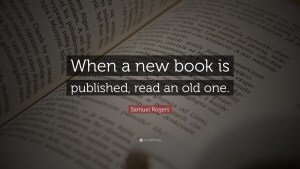
John Clark, back to sharing some YA book reviews, partially inspired by a photo I saw online. I could live to 750 and still never read every book I think is intriguing. There could be worse fates I’m sure. Since I review every book I read (It’s a good way to become a better writer), that adds up to a lot of thinking about other authors’ work. Below are some of my recent ones as well as a book I’m eagerly awaiting. I’ve recently discovered some that were published a few years back which is another perk of being an avid reader.
Burying Eva Flores by Jennifer Alsever
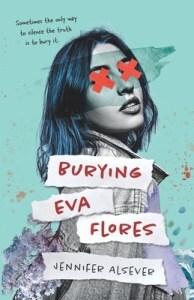
Deftly crafted YA story that tiptoes along the line between thriller and supernatural in a way that makes it impossible to put down. Sophia is as content as a teen with an absent dad and the family finances being tight could be. She has two close friends and little interest in the popular crowd. Then Eva, a Tik-Tok sensation moves to her small Colorado town and tries to befriend her. When Sophia shuns her, Eva begins a revenge campaign that’s over the top, not only threatening Sophia’s fragile tranquility, but her mom’s job, their home, and even the cafe where Sophia works. When things rush toward a confrontation, the results are at first painful for both girls, then extremely surprising. It’s a great read for thriller and suspense junkies. Torn to Pieces, September 9, 2008 by Margot McDonnell 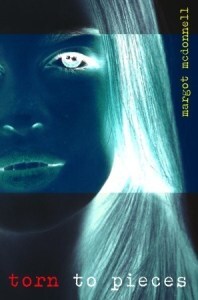
This one of those YA books that blends plot twist after plot twist in a most skilled way. As each one reaches a solution, It increases your anticipation as well as the suspense. 17 year old Anne is used to her mother’s quirky and unpredictable ways. Mom is often absent, supposedly off on an assignment, interviewing someone famous so she can write their biography. Anne, her mom, and her grandparents who live down the street, have also moved numerous times, even once or twice with almost no notice. This town, small as it might be, is more like home than any Anne has ever known. She’s got a close friend, she’s in the band, and some of the boys are finally starting to notice her. The hot new guy in school seems extremely interested in her and she’s trying to figure out the quiet, loner boy, Evan. Then everything starts to change. Mom is overdue from a trip, the hot guy starts acting funny, strange things begin happening while Anne’s alone. Before long, Anne starts finding clues in a long letter her mom left for her to read. I really like the way one page from the letter is read by Anne after each chapter to help explain what’s happening. Is her mother the person who she is called to identify in the morgue? Who is the blonde her friend Bianca keeps seeing the hot guy meeting at the mall? What isn’t Evan telling her about his abusive dad? What is the secret her grandparents are hiding from her? Why is the big estate her mom left her suddenly frozen and by whom? Who were the two guys who assaulted her when she caught them ransacking her house and what, exactly were they looking for? By the end of the book, the author has done one heck of a nice job answering these and a bunch more questions, leaving the reader wrung out, but very satisfied.
Blur (Blur Trilogy #1) by Steven James Published May 27th 2014 by Skyscape This is what a YA mystery should be-Cryptic, slightly creepy, and with plenty of twists. Daniel, a star football player whose dad is the sheriff, starts having headaches and seeing things after the death of a girl he barely knew. Both intensify at her funeral, starting him on a path to determine whether her drowning was accidental or murder. Stacy, a mysterious girl who just started attending his high school, pushes him to look for clues to make a case that it was murder. Add in her never answering her phone or responding to texts, Daniel’s dilemma about whether he likes her or Nicole, another classmate, coupled with numerous red herrings, makes this a compulsively readable story.
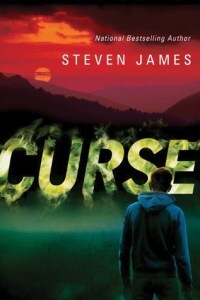
Fury / Steven James Skyscape, 2015 Daniel continues to have ‘blurs’, those moments when he sees people who are not there. This time, it’s a young girl who burns up after giving him a cryptic message. In the course of pursuing clues that might explain what this apparition wants from him, he and his girlfriend, Nicole, discover wolves being shot and a mysterious lighthouse on an island that may have a connection to an uncle who killed himself. Add in revelations about his grandmother, why his mother left him and his dad, as well as him landing in a mental hospital after being found with blood on his hands, and you have a dandy second book. Curse / Steven James Skyscape 2016 Like the second book, this one builds very nicely on what has happened in the first one as well as what took place in book two. This time, the action moves to Georgia and Tennessee, following the events in the first two taking place in Wisconsin. It begins with Daniel nearly getting killed when he has another ‘blur’, this time seeing a young boy about to be hit by a loaded logging truck. Instead of saving the child, he’s hit by the truck and sustains a sprained ankle and a dislocated shoulder. Neither is sufficient to stop him from going to a basketball camp in Georgia. His parents are concerned, but agree to let him go as long as he takes Nicole, his best friend Kyle, and Kyle’s girlfriend, Mia. Meanwhile, the evil doctor who was experimenting on prisoners in the second book, is busy trying to kidnap Daniel and three other teens who have similar powers. Add in a secret government plot, another creepy hospital, multiple close calls, a surprise at the end, and you have the perfect conclusion to a great trilogy.
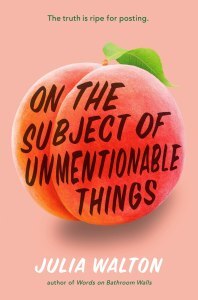
On the Subject of Unmentionable Things / Julia Walton. 9780593310571. Random House Books for Young Readers (August 23, 2022) This has today’s relevance running through it in an abundance of ways. Start with a small town where tension, both political and religious, simmer beneath the appearance of tranquility. Top that with a girl named Phoebe whose curiosity about sex was lit on fire when a gynecologist retired in her neighborhood and she bought all the woman’s textbooks and models at a lawn sale. She’s read much of her hoard, and her increased knowledge led her to start an online blog called Circle Within the Square. It was a place to sort out her thoughts and save information, but then it went viral. Now she’s faced with a dilemma…keep it low profile, or run with it because there’s certainly plenty of interest and teens who comment are definitely eager to know the right answers to sex questions. Then a woman who those in Maine would most likely compare to someone named LePage, (or fill in any hard-wired religious fanatic), goes on a witch hunt, trying to root out the blogger. That fanaticism escalates to the woman running for mayor, using threats, quite possibly supporting violence against enterprises she dislikes in town, using possibly illegal tracking software, and even going as far as bribing a boy that Phoebe liked and respected, who is editor of the school newspaper she writes for to out Phoebe. Sadly, that boy shows his weakness right when Phoebe needs support. Fortunately, she has her best friend, the best friend’s geeky boyfriend, and a football player who shows surprising integrity, to step up when Phoebe needs it most. This might seem a bit long for a review, but there are so many aspects/hot buttons in here that teens, especially girls, are dealing with right now that I wanted to do it justice. It’s a no-brainer choice for school and public libraries. 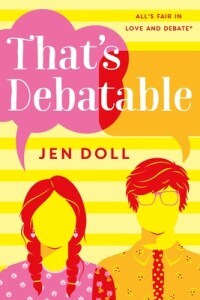
That’s Debatable / Jen Doll. Farrar, Straus and Giroux (BYR) (August 30, 2022) 9780374306045 We know how much push back there is when girls want to compete in a traditionally male sport, but what are the dynamics in a non-sport high school activity that is, in theory, coed? Meet Millicent Chalmers, high school senior in Alabama. Despite the toxic masculinity so prevalent at debate competitions, she has managed to maintain her composure sufficiently to win the state competition three times in a row. If she wins this year, it will garner her a four year scholarship. Given that she has one parent, her mother who is an RN and often works double shifts to keep them afloat, that scholarship is her brass ring. She’s learned to be cool and focused, able to tear apart opponent’s arguments on a regular basis. Then there’s Taggart Strong, a complete opposite. His family lacks for nothing, but he has trouble with the concept of debating in support of an issue he finds morally wrong. That mindset drives his best friend and captain of the debate team crazy. It also frustrates his parents who see him as being on track to go to college and become a lawyer like his father. Tag, however loves to cook, and the inherent satisfaction in creating new dishes is a much stronger lure than college, but how to get that across to Mom and Dad? When there’s what at first seems to be a school shooter situation during a debate tournament, Millicent freezes, but Tag responds by pulling her into a storage closet where they remain for nearly an hour. It’s the beginning of big changes for both of them. I’ll leave it to you to discover them by reading the book, but will say they involve some pretty nasty behaviors toward Millicent, a gradual relaxing on both their parts toward the iron straight paths they see themselves on, and plenty of great information about the whole debate process. In sum, it’s a smart, intriguing look at contemporary challenges teens face and will make many of them do some self-reflection.

One book I’m very much looking forward to reading (I have pre-ordered it) is Sugaring Off by Gillian French, Algonquin Young Readers (November 1, 2022) 9781643752709. Gillian writes about Maine and teens the way I perceive them. Here’s a teaser about the book: Left partially deaf by an early childhood tragedy that ended in her father’s incarceration, seventeen-year-old Owl is now a tracker, an explorer, a wildlife enthusiast, and always her freest self while hiking the steep forested acres surrounding her aunt and uncle’s maple sugar farm, now her home. Owl and her aunt and uncle never speak of the brutal attack that brought her to them. On the day she confronts a stranger trespassing among the maples, Owl’s sheltered existence is blown wide open by Cody—the magnetic, dangerous young man hired to help with the sugaring off. Cody seems to see her, the real her, in a way no one else does. Together, they challenge each other, learn to question their preconceptions, and risk a romance their families are desperate to stop. But when Owl learns that some part of Cody is compelled toward self-destruction, she must make a difficult decision about their relationship at the same time she’s grappling with her father’s recent release from prison. And when a seemingly motiveless local murder draws attention to Cody, Owl realizes that Cody is in far more serious trouble than anyone knows—and it’s followed him to her mountain.
September 2, 2022
Weekend Update: September 3-4, 2022
 Next week at Maine Crime Writers there will be posts by John Clark (Tuesday), Brenda Buchanan (Thursday), and Jule Selbo (Friday).
Next week at Maine Crime Writers there will be posts by John Clark (Tuesday), Brenda Buchanan (Thursday), and Jule Selbo (Friday).
In the news department, here’s what’s happening with some of us who blog regularly at Maine Crime Writers:
Matt Cost here: This past week a podcast interview of me by the real life PI, John Hoda, aired. It was fascinating to be asked questions about the private investigators in my books by a man who did it for a living for the past thirty years. You can listen here: Matt Cost interview on My Favorite Detectives.
Matt Cost will be signing his books at the 2nd Friday Brunswick Art Walk next Friday, September 9th, from 4-7. Stop by, listen to some great music, check out the art, and say hi.
An invitation to readers of this blog: Do you have news relating to Maine, Crime, or Writing? We’d love to hear from you. Just comment below to share.
And a reminder: If your library, school, or organization is looking for a speaker, we are often available to talk about the writing process, research, where we get our ideas, and other mysteries of the business, along with the very popular “Making a Mystery” with audience participation, and “Casting Call: How We Staff Our Mysteries.” We also do programs on Zoom. Contact Kate Flora
Hemingway’s Iceberg Theory and Other Craft Musings
Kate Flora: I was driving around yesterday, doing errands, and listening to Friendship Point by Alice Eliot Dark, the book my book group has chosen for September. At one point, one of characters refers to Hemingway’s “Iceberg Theory.” As an English major and long-time writer and consumer of writing books, I was surprised that I had never heard of the theory, at least not attributed to Hemingway.
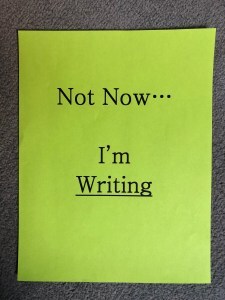 For years, I’ve known about the iceberg theory of research, where writers, and especially crime writers, do a ton of research for our books, and then choose the best, most pertinent bits to include in our scenes or our descriptions, letting all the research we’ve done underpin what we finally choose to use in the book. Often, we find ourselves distilling pages and pages of notes about any particular topic into a few pertinent sentences. It seems that this is pretty much what Hemingway is advocating, but with a difference.
For years, I’ve known about the iceberg theory of research, where writers, and especially crime writers, do a ton of research for our books, and then choose the best, most pertinent bits to include in our scenes or our descriptions, letting all the research we’ve done underpin what we finally choose to use in the book. Often, we find ourselves distilling pages and pages of notes about any particular topic into a few pertinent sentences. It seems that this is pretty much what Hemingway is advocating, but with a difference.
The paragraphs below are taken from the Wikipedia entry about Hemingway’s Iceberg Theory. Something that I found very telling—and important—reading them is what he had to say about what you choose to leave out. You leave out the things you know, not the things you do not, making a deliberate choice about why the details omitted are chosen.
In 1923, Hemingway conceived of the idea of a new theory of writing after finishing his short story “Out of Season“. In A Moveable Feast (1964), his posthumously published memoirs about his years as a young writer in Paris, he explains: “I omitted the real end [of “Out of Season”] which was that the old man hanged himself. This was omitted on my new theory that you could omit anything… and the omitted part would strengthen the story.” In chapter sixteen of Death in the Afternoon he compares his theory about writing to an iceberg.
Hemingway’s biographer Carlos Baker believed that as a writer of short stories Hemingway learned “how to get the most from the least, how to prune language and avoid waste motion, how to multiply intensities, and how to tell nothing but the truth in a way that allowed for telling more than the truth.”[6] Baker also notes that the writing style of the “iceberg theory” suggests that a story’s narrative and nuanced complexities, complete with symbolism, operate under the surface of the story itself.
For example, Hemingway believed a writer could describe an action, such as Nick Adams fishing in “Big Two-Hearted River,” while conveying a different message about the action itself—Nick Adams concentrating on fishing to the extent that he does not have to think about the unpleasantness of his war experience. In his essay “The Art of the Short Story”, Hemingway is clear about his method: “A few things I have found to be true. If you leave out important things or events that you know about, the story is strengthened. If you leave or skip something because you do not know it, the story will be worthless. The test of any story is how very good the stuff that you, not your editors, omit.” A writer explained how it brings a story gravitas:
Hemingway said that only the tip of the iceberg showed in fiction—your reader will see only what is above the water—but the knowledge that you have about your character that never makes it into the story acts as the bulk of the iceberg. And that is what gives your story weight and gravitas.— Jenna Blum in The Author at Work, 2013[9]
https://www.theparisreview.org/letters-essays/3267/the-art-of-the-short-story-ernest-hemingway
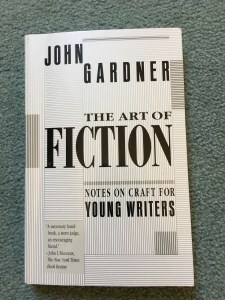 Reading the statement that you omit the things you know, making that choice about them, immediate shot me back to a seminar at Vermont College, where I was working on an MFA before I dropped out because I had too much writing to do. We were discussing a student’s short story about a careless father who had left his young child somewhere during a night of drinking. The story felt unsatisfying, and when asked whether the child was okay, the writer admitted he had no idea. Not a deliberate omission, and not a carefully created void to be filled by the reader’s imagination and what could be read between the lines. Maybe my reader’s feeling dissatisfaction came from the writer’s not knowing?
Reading the statement that you omit the things you know, making that choice about them, immediate shot me back to a seminar at Vermont College, where I was working on an MFA before I dropped out because I had too much writing to do. We were discussing a student’s short story about a careless father who had left his young child somewhere during a night of drinking. The story felt unsatisfying, and when asked whether the child was okay, the writer admitted he had no idea. Not a deliberate omission, and not a carefully created void to be filled by the reader’s imagination and what could be read between the lines. Maybe my reader’s feeling dissatisfaction came from the writer’s not knowing?
I admit, I’ve never been very fond of Hemingway, but I do now want to go back to reread more of his short stories. And stirred by that, and by pulling John Gardner’s book off my shelves, I can see spending part of September rereading some of my many books about craft including two books I’ve always found inspiring, Save the Cat, which is about screenwriting but has valuable information for writers as well, and Tim O’Brien’s The Things They Carried, which uses the technique of what soldiers in Vietnam carried to tell his readers about then.
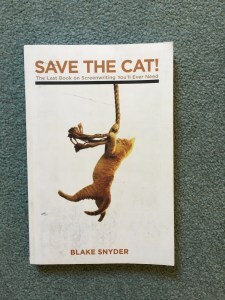
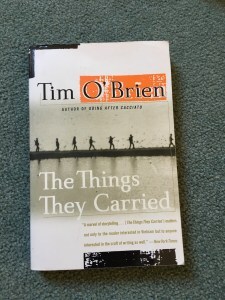
Reading about the iceberg theory also brought to mind two exercises I love that I have often used with my writing students. Both exercises challenge the student to use language to show what is happening without explicitly describing it. Both come from John Gardner’s book, The Art of Fiction.
Exercise One: Write a paragraph describing a building from the point of view of an old man whose son has been killed in the war, without mentioning the son, death, the old man, or the war.
Exercise Two: Write a paragraph describing that same building, some time of day and time of year, from the point of view of a happy lover.
August 31, 2022
I was just going to tweak it a little . . .
Kaitlyn Dunnett/Kathy Lynn Emerson here, with a cautionary tale for writers. As I’ve mentioned on this blog before, I am in the process of creating omnibus editions of some of my backlist books. The Face Down series is now out in three volumes and the Diana Spaulding 1888 Mysteries in one. The current project was supposed to be a read through/minor revising of the three historical romantic suspense novels I wrote for the Harper Monogram line back in the 1990s.

That was the plan. Then I started rereading Winter Tapestry, the earliest of the three and the one with the most checkered history. It started out as a mystery novel, but it hadn’t sold to any house publishing that genre by the time I was at a mystery conference and ran into an editor I’d worked with before, when she was at Silhouette. She mentioned that she’d been working at St. Martin’s when my manuscript was submitted there and that she’d wanted to buy it, but she’d been overruled by a senior editor. She asked if it had found a home and when I told her it had not, she suggested that if I revised it to heighten the romance elements (and to bring the word count up to 100,000 words) she could publish it as part of a new imprint she was editing at Harper Collins. I did and she did, which was great at the time. Winter Tapestry became my first published historical novel written for adults rather than middle-grades readers.
There was only one problem. The paperback original was labeled “historical romance” on the spine when, really, it was not your typical historical romance novel. Neither could it any longer be categorized as historical mystery. The front cover called it “a romantic adventure in Tudor England,” which was closer to the reality, but still not quite right. It did okay. It earned back the advance and a bit more and apparently had Spanish and Italian editions, although I never received copies of those. In 2003, after the rights were returned to me, I did a bit of tweaking to produce an e-book edition. One of the tweaks was to put back a couple of scenes that had been cut out of the expanded Harper version—scenes that elaborated on a subplot that had to do with spies and rebellions in England in 1553-4.

cover for the first ebook edition
So, back to the present. I expected all I’d have to do was a quick proofread, maybe eliminating some of those instances of ’tis and ’twas that I used to think gave my character’s dialogue the “flavor” of the language but that, these days, I just find annoying. I was about halfway through the second of twelve chapters when it struck me that there was a lot more I could do to make the book better.
I’m a much better writer now than I was thirty-plus years ago. Passages that seemed essential back then now screamed “information dump” and “wordy.” To be honest, although no one thought my writing needed self-editing at the time, rereading this book felt like going through one of my manuscripts at the second or third (of four or five) draft stage. I even found several instances of head-hopping, something I knew, even back in the 1990s, should be avoided at all costs! There was a lot of repetition, too, probably because I was following something called the “rule of three”—anything important for the reader to remember should be mentioned three times at various points in the text.

typical “improvements”
It didn’t take me too long to realize that, instead of combining three slightly edited older novels into an omnibus edition, I needed to do a complete rewrite of Winter Tapestry. The plot and characters would remain the same, but the text would be “substantially different”—enough to allow me to bring it out under a new title. My original title was The Die is Cast after the code words used to identify conspirators (the good guys) in the plot. The heroine’s murdered father is deeply involved in spying on those plotting rebellion against the English Crown. A quick check of titles on Amazon, however, showed me there are way too many books out there with that same title. That’s probably why my editor insisted on changing it back in 1991. I decided to go with, tentatively, After the Die Was Cast and started going through a printout to cut passages, substitute better word choices, and occasionally move scenes around for better flow, while also improving the pacing and emphasizing the mystery elements.

The new plan was to self-publish the novel as a single title but to keep the original e-book version available as well. If nothing else, that would provide a study in contrasts for those interested in such things.
Onward I went, producing page after page that look like the ones illustrating this post. And then, partway through revising and cutting a lot of excess, I realized that the real problem with the original was a divided focus, compounded by multiple point-of-view characters. Yes, there can be a rebellion/spy aspect to the story, but it needs to be a subplot. To return the emphasis to the mystery, I needed to make more cuts. A lot more cuts. And cutting was probably a good idea anyway—let my readers make discoveries at the same time as my protagonist.

So, it was back to the drawing board. Main plot: who killed a former royal mapmaker and why? Subplot One: his daughter’s certainty that the motive has to do with her father’s secret mission, a mission she’s determined to complete. Subplot Two: her efforts to avoid being married off to someone who appears to have an agenda of his own. You’ll notice I’ve avoided naming the characters. I’m torn between leaving them the same and changing them to further make this a “new” book.
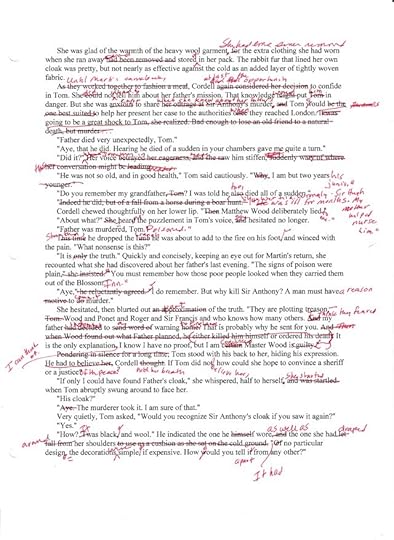
I’ve actually written some new material—the first new writing I’ve done in a couple of years. I’m putting everything in the daughter’s POV, so there’s a lot to redo to give the reader information that used to be included in scenes that took place when she wasn’t present. I’m trying to condense the historical stuff to what’s absolutely necessary and not get bogged down in excess details. Some of the secondary characters are real people, so it’s always a challenge to keep them true to what’s known about them. In some cases, I know a lot more about them now than I did when I wrote Winter Tapestry, so there are some changes to make there, too.
What started out to be a fairly simple if time-consuming project has turned into much more. I have no idea how long it will take me to finish. Both the advantage and the disadvantage of not having a deadline is that I don’t have to rush. It will be done when it’s done. In the meantime, it’s good to have a goal. And, of course, after that’s met, I still have two more historical romantic suspense novels to take a look at. Will they be combined into a two-book omnibus? Or will they, too, demand a total rewrite?
Stay tuned.
 Kathy Lynn Emerson/Kaitlyn Dunnett has had sixty-four books traditionally published and has self published others, including several children’s books. She won the Agatha Award and was an Anthony and Macavity finalist for best mystery nonfiction of 2008 for How to Write Killer Historical Mysteries and was an Agatha Award finalist in 2015 in the best mystery short story category. She was the Malice Domestic Guest of Honor in 2014. Her most recent publications are The Valentine Veilleux Mysteries (a collection of three short stories and a novella, written as Kaitlyn) and I Kill People for a Living: A Collection of Essays by a Writer of Cozy Mysteries (written as Kathy). She maintains websites at www.KaitlynDunnett.com and www.KathyLynnEmerson.com.
Kathy Lynn Emerson/Kaitlyn Dunnett has had sixty-four books traditionally published and has self published others, including several children’s books. She won the Agatha Award and was an Anthony and Macavity finalist for best mystery nonfiction of 2008 for How to Write Killer Historical Mysteries and was an Agatha Award finalist in 2015 in the best mystery short story category. She was the Malice Domestic Guest of Honor in 2014. Her most recent publications are The Valentine Veilleux Mysteries (a collection of three short stories and a novella, written as Kaitlyn) and I Kill People for a Living: A Collection of Essays by a Writer of Cozy Mysteries (written as Kathy). She maintains websites at www.KaitlynDunnett.com and www.KathyLynnEmerson.com.
August 29, 2022
Meetin’ The People
Maine Authors Publishing, my publisher, just hosted their annual BookFair event. It’s always a great day because I get to talk with folks who read my books.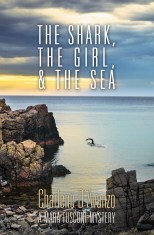
I have no idea how it is with other writers, but I’m always surprised that these folks act as if they know me. Of course, they do in a way – they know what I am passionate about (e.g., environmental issues, Maine’s coastal waters, the everyday life of scientists). Each of those themes comes to life in my most recent book, “The Shark, The Girl, & The Sea”.
That’s what writers do – we dig down deep and bring to literal life issues that consume us and that we hope others will care as deeply about.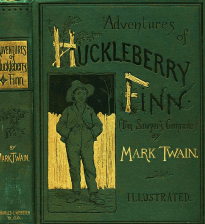
Who but Mark Twain, for example, could bring Huck and Jim together as fellow travelers on the Mississippi River so we really know Jim as a man and not just a runaway slave.
A very different book, “1984”, is a dystopi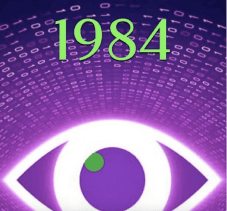 an science fiction novel, that takes place in an imagined future with mass surveillance and repression. Great Britain, known as Airstrip One, is ruled by the Party which uses Thought Police to persecute independent thinking. Terms now common include “Big Brother” and “Doublethink”. Anyone who cares deeply about issues such as gay marriage and abortion can relate to “1984”.
an science fiction novel, that takes place in an imagined future with mass surveillance and repression. Great Britain, known as Airstrip One, is ruled by the Party which uses Thought Police to persecute independent thinking. Terms now common include “Big Brother” and “Doublethink”. Anyone who cares deeply about issues such as gay marriage and abortion can relate to “1984”.
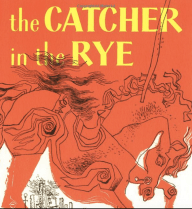 I’ll end with “The Catcher In The Rye”, J.D. Salinger’s novel about alienation told through the voice of Holden Caulfield, a depressed teenager who lives in a sanitorium at the end of World War II. “Catcher” is both one of the most censored and second most taught books in U.S. public schools. Challenges with “Catcher’ include undermining family values, frequent use of vulgar language, and promotion of smoking, drinking, and the like.
I’ll end with “The Catcher In The Rye”, J.D. Salinger’s novel about alienation told through the voice of Holden Caulfield, a depressed teenager who lives in a sanitorium at the end of World War II. “Catcher” is both one of the most censored and second most taught books in U.S. public schools. Challenges with “Catcher’ include undermining family values, frequent use of vulgar language, and promotion of smoking, drinking, and the like.
August 26, 2022
Weekend Update: August 27-28, 2022
 Next week at Maine Crime Writers there will be posts by Charlene D’Avanzo (Monday), Kaitlyn Dunnett/Kathy Lynn Emerson (Thursday), and Kate Flora (Friday).
Next week at Maine Crime Writers there will be posts by Charlene D’Avanzo (Monday), Kaitlyn Dunnett/Kathy Lynn Emerson (Thursday), and Kate Flora (Friday).
In the news department, here’s what’s happening with some of us who blog regularly at Maine Crime Writers:
In case you missed it, John Clark’s anthology of Y/A stories is now available as a print or e-book. https://www.amazon.com/HardScrabble-Kids-Semi-magical-tales-Maine/dp/B0B6XZ2RX2/ref=sr_1_1?crid=W1X2BPGWBH7X&keywords=John+Clark+Hardscrabble+Kids&qid=1661561267&sprefix=john+clark+hardscrabble+kids%2Caps%2C130&sr=8-1
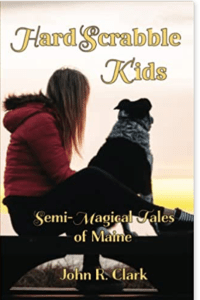
With the end of summer upon us, you’re probably busy out recreating, but in case you’re reading this, we’d love to know what readers of the blog would like to see more of. Writing advice? More about why Maine is such a draw for writers? Information about our upcoming books? Crime writing is a community, and we like to think there is also a community of Maine Crime Writers and our readers.
And here are a few photos from this Maine summer to enjoy.
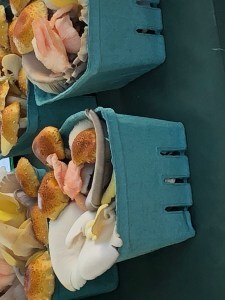
Mushrooms at the Crystal Springs farmers market

Musicians at the Farmer’s Market

A very inventive little library on Bailey Island
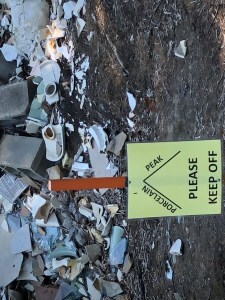
Porcelain Peak – a mini mountain of old toilets, sinks and tubs at the Harpswell transfer station
An invitation to readers of this blog: Do you have news relating to Maine, Crime, or Writing? We’d love to hear from you. Just comment below to share.
And a reminder: If your library, school, or organization is looking for a speaker, we are often available to talk about the writing process, research, where we get our ideas, and other mysteries of the business, along with the very popular “Making a Mystery” with audience participation, and “Casting Call: How We Staff Our Mysteries.” We also do programs on Zoom. Contact Kate Flora
It’s a Mystery Where Ideas Come From by Matt Cost
I’m often asked where the ideas come from for my plots. With my historical fiction, the answer is easy. I pick something of interest to me from the past, research, and write about it. With mysteries, it is not quite so cut and dried. Of course, the topic does have to interest me, but what is the plot going to be?
More often than not, it is stories in the news that spark my interest, giving me the seed of a notion, and then I plant that idea and nourish it. Sometimes it springs forth quickly like a sunflower, and other times it is more like the fruition of the pawpaw tree.


My first mystery, Mainely Power, was spawned in a bar having a beer while sitting next to a clam digger. In the course of the conversation, the man mentioned that he often harvested the flats outside of Maine Yankee, and that there was little exterior security to the plant, and that he could walk right up to the front door. Spark went my imagination. It took some time to burn but eventually found its way to the pages. When I told this story during an interview on Maine Calling, the former security supervisor of Maine Yankee called in to say that this was untrue, and that the facility was well secured. I’ve had many people contact me since with stories that contradict her. It is possible that she was just upset because she read the book and discovered that I killed the head of security on page four.

My fourth Clay Wolfe/Port Essex mystery, Cosmic Trap, coming out in December, kindled with a news spot on UAPs. Unidentified Aerial Phenomena Not nearly as snappy as UFO. But inside my mind the UAP blossomed like the night sky. It is quite clear that sightings of these aerial phenomena are real, as they’ve been caught on video by many pilots, but what are they? Aliens? Russians? Chinese? Or somebody or something else? That, for me, is the origination of a mystery plot.
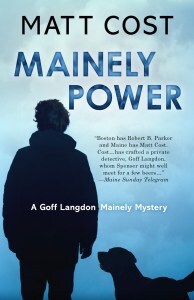
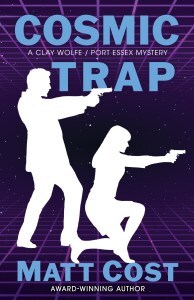
In April of 2023, I will be birthing a new mystery series. I’ve decided to combine my love of histories and mysteries into a historical PI character named 8 Ballo who lives in 1923 Brooklyn. Velma Gone Awry started out as simple as a missing person and grew from there, much of the plot being the characters and the setting as much as the case, as legendary figures and events fill the pages.
Nuclear power plants, ice storm vandals, blackmailed senators, heroin smuggled through lobster traps, cults in Maine, pandemic angst, human genome editing, UAPs, wiccans and wendigos, and buried treasure have all made the hurdle from a notion to the written page in the course of my writing life, but there are many more tidbits germinating in the dark recesses of my mind

Right now, the operation of that particular gadget called the creative process is whirring into life as I prepare to write book two of the Brooklyn 8 Ballo historic PI series. A hit and run ruled accidental death. Or was sit? The Eugenics Movement. Spark. Time to build the fire.
Write on.
Lea Wait's Blog
- Lea Wait's profile
- 509 followers



